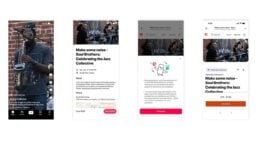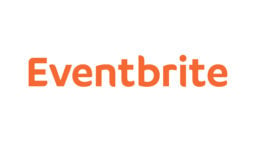Online ticketing platform Eventbrite has today (August 23) officially filed for an IPO on the New York Stock Exchange.
In an S-1 form filed with the US Securities & Exchange Commission, Eventbrite highlights Live Nation subsidiaries – Front Gate Tickets, TicketWeb and Universe – as its key competitors.
Goldman Sachs is leading the underwriting of the IPO, with JPMorgan, Allen & Co. and RBC Capital Markets also all participating.
The S-1 proposes that San Francisco-based Eventbrite will make up to $200m-worth of Class A common stock available on the NYSE.
Eventbrite’s flotation would be the third recent example of a music-related company going public in the US: speaker firm Sonos debuted on the Nasdaq earlier this month, while Spotify famously landed on the NYSE back in April.
Meanwhile, China-based Tencent Music Entertainment (TME) is expected to float in the US later this year.
Eventbrite describes its business model as “[charging] creators on a per-ticket basis when an attendee purchases a paid ticket for an event”.
In 2017, the company helped more than 700,000 of these ‘creators’ issue approximately 203 million tickets across three million events in over 170 countries.
The S-1 reveals that, in 2017, 54% of Eventbrite’s net revenue came from its ‘creators’.
In 2017, Eventbrite’s net revenue was $201.6m, up from $133.5m in 2016 – year-over-year growth of 51.0%.
The firm’s net loss was $40.4m and $38.5m in 2016 and 2017, respectively.
In the six months ended June 30, 2018, Eventbrite’s revenues stood at $142.1m, up from $88.2m in the equivalent prior year period.
Its net loss in H1 2018 was $15.6 million.
Last year, Eventbrite acquired its rival, indie ticket service Ticketfly from Pandora for $200 million.
It also acquired Amsterdam-based Ticketscript – after which Eventbrite claimed it had become Europe’s third largest ticketing platform.
Under ‘risk factors’ for its IPO, Eventbrite mentions its business’s reliance on partnerships with the likes of Facebook and Spotify.
It warns: “These third-party partners may terminate their relationship with us, limit certain integration functionality, change their treatment of our services or restrict access to their platform by creators at any time.
“For example, in the past, Facebook removed a feature of its service that allowed creators to include multiple hosts on a single event seamlessly across platforms, which negatively impacted certain music creators’ use of the Facebook integration with our platform.
“If any such third-party services becomes incompatible with our platform or the use of our platform and solutions on such third-party platforms are restricted in the future, our business will be harmed.”Music Business Worldwide




